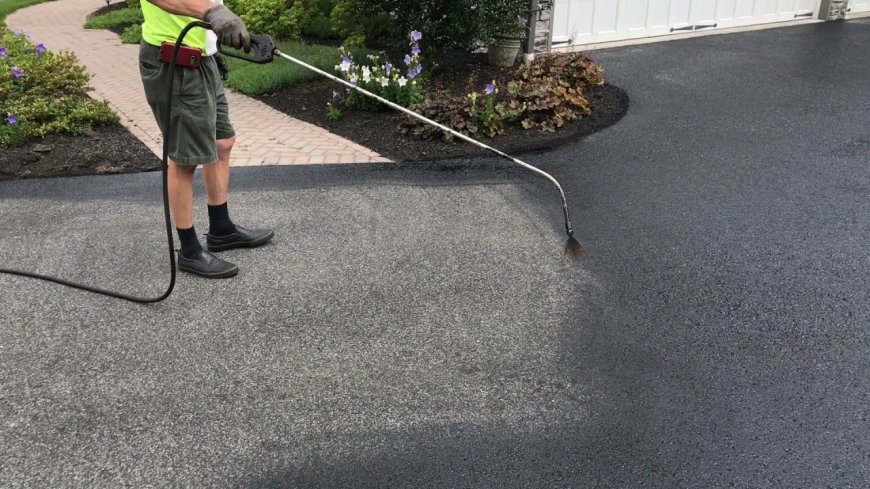Comprehensive Guide to Residential Driveway Paving
Residential Driveway Paving

Residential driveway paving is a significant home improvement project that not only enhances the curb appeal of your property but also provides a durable and functional surface for vehicles. Whether you are installing a new driveway or replacing an existing one, understanding the process and options available is essential to achieving a successful and long-lasting result.
Benefits of Residential Driveway Paving
Residential driveway paving offers numerous benefits, including:
Enhanced Curb Appeal: A well-paved driveway significantly improves the appearance of your home, creating a welcoming entrance that boosts the overall aesthetic appeal of the property.
Increased Property Value: A professionally installed driveway can increase the market value of your home, making it a worthwhile investment.
Durability: Paved driveways are built to withstand heavy traffic and harsh weather conditions. They provide a stable and durable surface that can last for many years with proper maintenance.
Low Maintenance: Paved driveways require less maintenance compared to gravel or dirt driveways. They are easier to clean and maintain, reducing the time and effort needed to keep them in good condition.
Improved Safety: A smooth, even surface reduces the risk of tripping and falling, providing a safer environment for pedestrians and vehicles.
Types of Driveway Paving Materials
Several materials can be used for residential driveway paving, each with its own set of advantages and considerations:
Asphalt: Asphalt is a popular choice for driveways due to its durability, cost-effectiveness, and quick installation. It provides a smooth, black surface that is resistant to cracking and weather damage. Asphalt driveways can last 15-20 years with proper maintenance.
Concrete: Concrete driveways offer excellent durability and a long lifespan, typically lasting 30-40 years. They can be customized with various finishes and colors, providing a wide range of aesthetic options. Concrete is also low maintenance and resistant to weather and heavy traffic.
Pavers: Pavers are individual bricks or stones that are arranged to create a patterned surface. They offer high durability and a unique, attractive appearance. Pavers are resistant to cracking and can be easily replaced if damaged. They require more maintenance to prevent weed growth and shifting.
Gravel: Gravel driveways are an affordable option that provides good drainage and a rustic appearance. However, they require regular maintenance to keep the surface even and free of weeds. Gravel can also be less stable and may require frequent replenishment.
Permeable Pavers: Permeable pavers are an environmentally friendly option that allows water to pass through the surface, reducing runoff and promoting groundwater recharge. They are durable and available in various designs, but they can be more expensive to install.
The Residential Driveway Paving Process
The process of paving a residential driveway involves several key steps:
Planning and Design: Start by planning the layout and design of your driveway. Consider factors such as the size, shape, and slope of the driveway, as well as any drainage requirements. Obtain any necessary permits and check local regulations.
Site Preparation: Clear the area of any existing driveway material, vegetation, and debris. Excavate the site to the appropriate depth, ensuring a stable base for the new driveway. This may involve grading the area to ensure proper drainage.
Base Installation: Install a base layer of crushed stone or gravel, which provides a stable foundation for the driveway. Compact the base thoroughly to prevent settling and ensure a smooth surface.
Edging: Install edging materials, such as concrete or metal, to define the boundaries of the driveway and provide support for the paving material.
Paving: Apply the chosen paving material according to the manufacturer's instructions. For asphalt or concrete, this involves pouring and spreading the material evenly. For pavers, arrange the individual pieces in the desired pattern. Ensure the surface is level and smooth.
Finishing: For asphalt and concrete driveways, allow the material to cure and harden. This may take several days, depending on the weather conditions. For paver driveways, fill the joints with sand or a jointing material to lock the pavers in place.
Sealing: Once the driveway is fully cured, consider applying a sealant to protect the surface from weather damage and extend its lifespan. Sealing is particularly important for asphalt driveways.
Maintenance Tips for Paved Driveways
To keep your paved driveway in excellent condition, follow these maintenance tips:
Regular Cleaning: Sweep the driveway regularly to remove dirt, leaves, and debris. Use a pressure washer to clean the surface periodically.
Crack Repair: Promptly repair any cracks or potholes to prevent further damage. Use appropriate repair materials for the type of paving.
Sealing: Reapply sealant as needed to maintain the protective layer on the surface. For asphalt driveways, this is typically done every 2-3 years.
Snow and Ice Removal: Use a plastic shovel or snow blower to remove snow and ice. Avoid using metal shovels or harsh chemicals that can damage the surface.
Avoid Heavy Loads: Avoid parking heavy vehicles or equipment on the driveway for extended periods, as this can cause indentations and damage.
Conclusion
Residential driveway paving is a valuable home improvement project that offers numerous benefits, from enhancing curb appeal to providing a durable and low-maintenance surface. By understanding the various paving materials and the installation process, homeowners can make informed decisions and achieve a successful and long-lasting driveway. Whether you choose to do it yourself or hire a professional, investing in a well-paved driveway is an investment in the value and functionality of your home.












